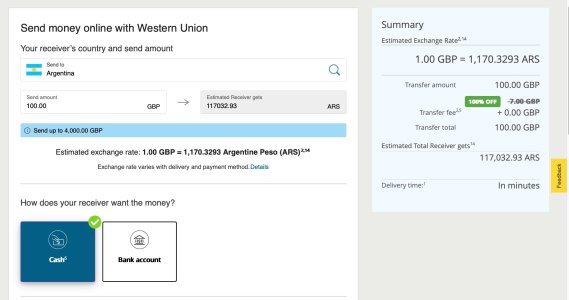Hello,
We are about to embark on a month-long journey to Chile and Argentina. Our itinerary involves spending most of our time in Chile, with the final week in Argentina, exploring Patagonia and Buenos Aires. Typically, we rely on a cash card in UK pounds and withdraw the local currency as needed upon arrival. However, we are considering whether it would be more advantageous to carry some US dollars or utilize a UK credit card.
Apologies if this appears straightforward to some, but I find myself quite perplexed by the situation. Could someone please share a link with relevant information for me to read?
Thank you for your assistance.
We are about to embark on a month-long journey to Chile and Argentina. Our itinerary involves spending most of our time in Chile, with the final week in Argentina, exploring Patagonia and Buenos Aires. Typically, we rely on a cash card in UK pounds and withdraw the local currency as needed upon arrival. However, we are considering whether it would be more advantageous to carry some US dollars or utilize a UK credit card.
Apologies if this appears straightforward to some, but I find myself quite perplexed by the situation. Could someone please share a link with relevant information for me to read?
Thank you for your assistance.


